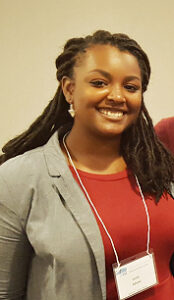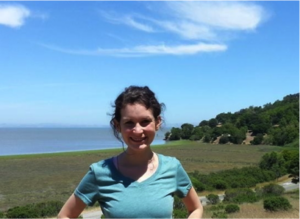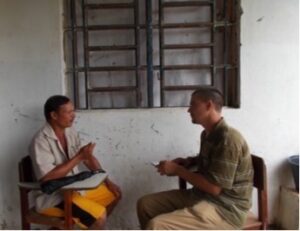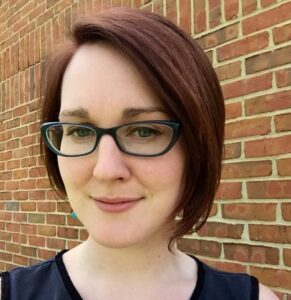2015 Seed Grant Awardees Abstracts
Leslie Adams
Department of Health Behavior
The My Brother’s Keeper (MBK) Initiative was launched in 2014 by President Obama as a national campaign aimed at improving the life outcomes of young men of color. The Durham County Government has accepted the call to action on this campaign and has been designated as an “MBK Community”, which will support locally driven efforts to address the educational, physical, social and emotional needs of young men (ages 11-21). The proposed project will coordinate engagement activities in support of the My Brother’s Keeper (MBK) initiative, a national campaign aimed at improving the life outcomes of young men of color. The MBK initiative, supported locally by the Durham County Government, will facilitate efforts to address the educational, physical, social and emotional needs of young people (ages 11-21) that span multiple life stages from cradle-to-college. The project will focus efforts in collaboration with the MBK health committee, comprised of local leaders in Durham, including stakeholders in government, health, religion, and non-profits. This project will use participatory methods to engage young men in the improvement of health outcomes for this population. Key activities in this project include focus groups to assess existing policies and participatory asset mapping, all held in coordination with local citizens and members of the MBK health committee. The overall goal of this project is to foster dialogue and cohesiveness on health promotion issues that are most vital to young men in Durham.
Sarah Kowitt
Department of Health Behavior
Within the field of public health, the goal of this participatory research project is to develop a community advisory board to guide my dissertation research. Specifically, I am examining how neighborhood level factors (e.g., neighborhood disadvantage) influence the health of individuals with type 2 diabetes in North Carolina. In order to ensure that my research involves the community and reflects community input, I will develop an advisory committee, composed of North Carolina residents with diabetes. The committee will help me interpret significant and non-significant quantitative findings; design the qualitative research portion of my dissertation study; develop semi-structured interview questions; and provide guidance for dissemination of results (e.g., to whom should results be disseminated; through what avenues). The goal will be a collaborative dissertation that includes community involvement from the beginning of the dissertation process to the end.
William Maxwell
Department of Anthropology
I am working with community expert Danny Bell to learn how American Indians can get involved with the North Carolina Botanical Garden’s Native American Garden in Chapel Hill. Our project involves conducting ethnographic interviews on plant uses and discussions with North Carolina American Indians regarding involvement in the garden. We intend to produce a report based on our findings as a road map to involvement. I will ask those I consult with, as well as Danny Bell, to write the report with me. We will also write short descriptions of plant uses to be posted alongside the plants in the garden. The intent of our project is to co-produce knowledge and bring about collaboration across cultures. This summer’s work will help lay the groundwork for my thesis research about the wild-native-plants-based arts and crafts of Robeson County, North Carolina, residents. It is also rich fodder for articles in scholarly journals focusing on collaborative methodology. By the end of the summer, I will have established connections with people in several North Carolina Native American communities that will serve me as I elaborate my research. It will simultaneously give these communities an opportunity to work with the Botanical Garden and establish connections on a more equal footing than in the past. Unfortunately, my field of ethnobotany has a sorry history of imperialism, extractivism, and capitalist exploitation. Today is not soon enough to start changing that.
Elizabeth Melton
Department of Communication
This project focuses on the fractured processes of desegregation in East Texas and its lingering impact on the area’s public education system. In collaboration with local educators and activists, I am investigating the ways East Texans remember and re-story their experiences during segregation and desegregation in the 1960s and 1970s. As a critical performance ethnographer, my work utilizes several methods, ranging from ethnographic interviews/oral history, archival research, and performance as research. It is my goal to work with the community to stage or re-present these histories using performance methods. At this stage, I am completing the preliminary research necessary to better prepare for my dissertation prospectus. I have been establishing connections with my community experts and identifying ways the community believes this research intersects with their goals.
Tainayah Thomas
Department of Health Behavior
Black men experience very poor health outcomes and the life expectancy of Black men has consistently lagged behind Whites and most other racial and ethnic groups of men. In North Carolina, the average life expectancy for Black males is 72.3 years compared to 78.1 for all North Carolinians and 81 years for White females. Diabetes is a leading cause of death for Black men and diabetes prevalence is highest among Blacks in North Carolina at 13.4%. Effective diabetes management depends on both an accessible healthcare system and self-management on the part of the patient. More complete explanations for these disparities among Black men have been limited. The purpose of this project is to examine how social and physical environment, access to healthcare, and medical mistrust influence diabetes self-management and healthcare seeking behaviors among Black men and to use this information to promote critical dialogue around this issue to advocate for change. In order to explore these issues, I used a community-based participatory research methodology, photovoice, with four Black male participants living in Wake County, North Carolina and plan to complement this photovoice project with medical provider interviews, in-depth illness narratives, and a community engagement plan.
Pavithra Vasudevan
Department of Geography
This collaborative research project investigates structural racism in Badin, North Carolina, a segregated town that is the site of a contemporary environmental justice struggle. Badin, ‘the town that aluminum built’, was a planned company town for workers with the Aluminum Company of America (Alcoa) and produced primary aluminum from 1917 to 2010. In partnership with environmental justice advocates, this project will record oral histories and gather audio-visual evidence with residents of the predominantly Black community of West Badin. The goal of the project is to examine how anti-Black racism has shaped working conditions, daily life and political struggles in this historic site. This project is a central component of my dissertation research, which explores the relationship of race and waste in aluminum production through a 100-year study of Badin using a combined ethnographic and archival approach.





